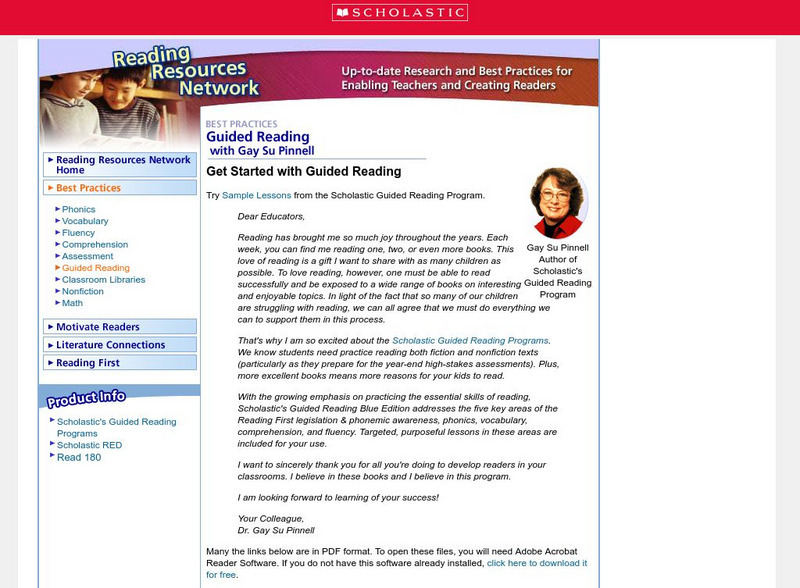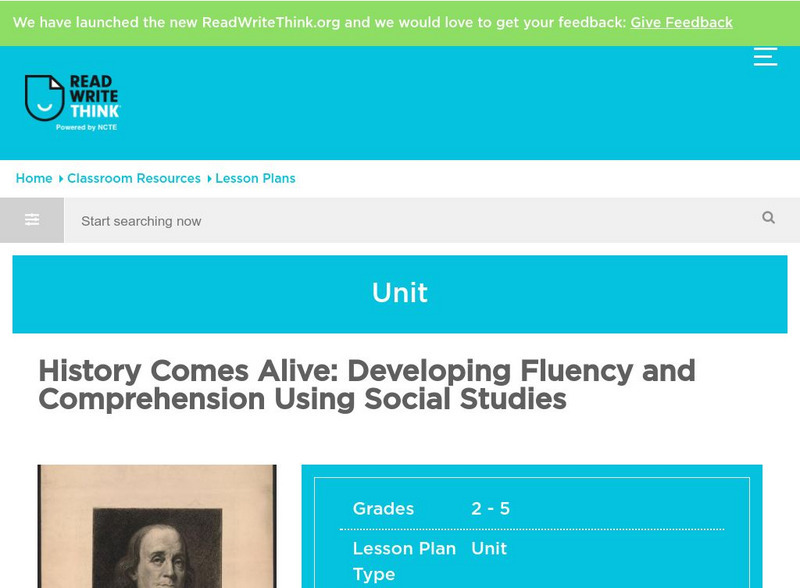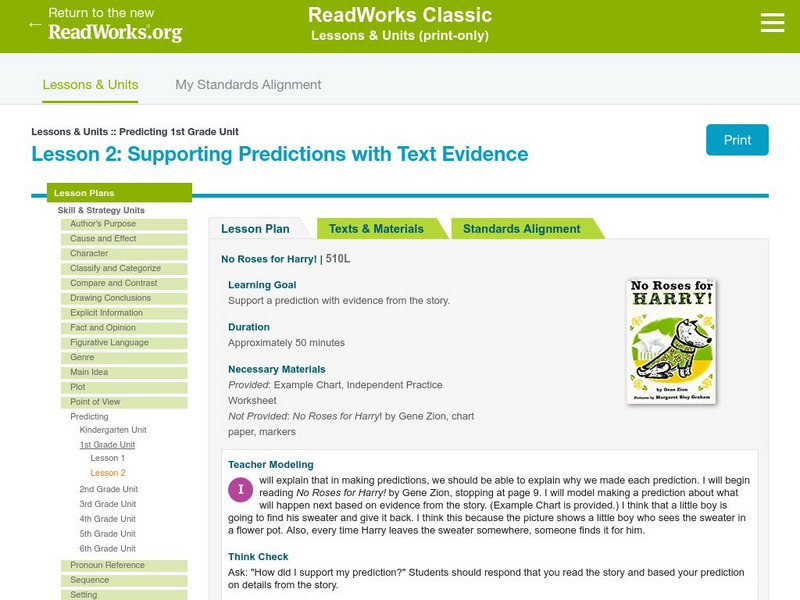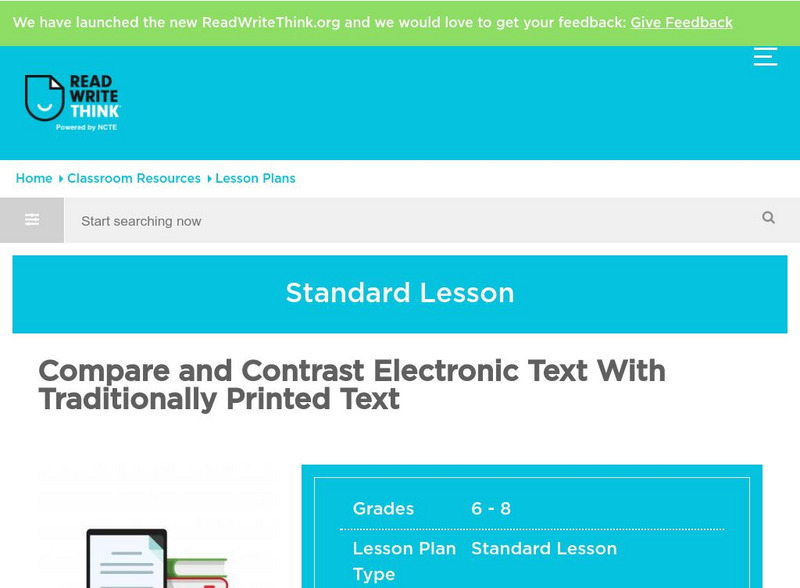Curated OER
Following a Monster
Learners follow tracks of a monster who has walked through their classroom to see what he has done. They discuss sequencing vocabulary before using computer software students sequence the monster's visit using a concept map. In a word...
Curated OER
Seasons' Journey : Putting it All Together
Third graders complete a diagram of the revolution of the earth around the sun and write a one paragraph explanation of the factors that cause seasons.
Curated OER
Learning From Leaves: Adaptation Scavenger Hunt
Students participate in an adaptation scavenger hunt at. They obtain various plant specimens, and sort the plants based on whether they came from a desert, tropical rainforest, or wetlands.
Curated OER
The Importance of the Group in Japan
Twelfth graders discuss the importance of the group in Japan. In groups, they compare and contrast behaviors and attitudes of those in Japan and the United States. They are given a case to review and identify the rules by which the...
Curated OER
How Does it Affect Plants?
Students examine the effects of acid rain on plants. They observe the growth of seeds and the health of different plants for a month. They share their findings with the community.
Curated OER
Wind Turbines
Pupils build their own wind turbine. In this physics lesson, students calculate the power output of their wind turbines. They evaluate their design and make the necessary modifications.
Curated OER
Deerfield Debates Its Future: Education
Students consider the effect of technological development, industrial growth and changing population on education in historical Deerfield Connecticut. They review many primary resources to investigate history and write a response to...
Curated OER
Seasons' Journey: As the World Turns
Fourth graders explore the earth's revolution around the sun and the changes in weather that follow this motion.
Curated OER
Graphing With RXTE
Students use data from the Rossi X-ray Tiiming Explorer (RXTE) satellite to analyze and graph.
Curated OER
Microbial Contaminants in Drinking Water
When presented with three unopened bottles of water, pupils are asked to tell decide which one is contaminated with a microbe. Students work in small groups and role play being a Microbiologist, a patient, or a recorder. The patient is...
Curated OER
Cloning and Related Issues
Eighth graders research information on cloning and the surrounding issues online. They analyze the issues surrounding cloning and present their point of view with supporting details in a Powerpoint presentation.
Curated OER
Social Studies: How Did Native Americans Live?
Fifth graders examine Edward Curtis' photographs and Robert Griffing's paintings to analyze Native American culture. They present research information on specific tribes, using the photos and paintings to uncover information about the...
Curated OER
Primary Sources
Students write personal facts on a photograph of themselves to create a Primary Source. They then define Primary Source and list examples as a class of places where they could find primary sources. They also discuss the importance of...
Curated OER
A Lion's Lair
Students evaluate the likelihood that a particular animal lived in a particular habitat. They research and illustrate lion habitats to determine whether lions were likely to have lived in ancient Greece.
Curated OER
Rock Art and Ritual
Students explore, examine and determine what kinds of rock art motifs are likely the product of ancient ritual descent. They identify connections between rock art symbolism and Native American ritual practices. Each student also views a...
Scholastic
Scholastic: Getting Started With Guided Reading
How do you get started with guided reading? At this site one can find the answer to this question. The online lesson plans will help get students started with guided reading.
ReadWriteThink
Read Write Think: Background for the Graphic Novel Persepolis: A Web Quest on Iran
This lesson focuses on students researching and learning about Iran's culture, society, and leadership before and after the 1979 Revolution in preparation for reading the graphic novel Persepolis. Students work in small groups to...
Better Lesson
Better Lesson: Introduction to Making Predictions and Inferences
First graders will engage in a shared reading of "Mr. C's Dinner" so that we can build a foundation for understanding what it takes to make good predictions and inferences.
Better Lesson
Better Lesson: Using Word and Picture Clues to Make an Inference
First graders will use text evidence to make inferences about word and word phrase meanings in a text. Word and picture clues will be used to help students form inferences.
ReadWriteThink
Read Write Think: History Comes Alive: Developing Fluency and Comprehension
Let the power of imagination and inference serve as a "time machine" to bring Benjamin Franklin into the classroom! History and science come to life in a dialogue with Franklin the inventor, developed through lesson activities that...
PBS
Pbs Learning Media: Walmart Middle School Litercy Initiative
Interactive, student-paced lessons on such literacy skills as categorizing, comparing and contrasting, summarizing, evaluating, determining cause and effect, using text features, connecting, inferring, sequencing, understanding problems...
PBS
Pbs Learning Media: Molly of Denali: Dream Tube Lesson Plan
Use this comprehensive activity as part of a comprehensive literacy, STEM, or social studies unit in which children will be using informational texts. In the "Dream Tube" animated story from the PBS Kids series Molly of Denali, Molly and...
Read Works
Read Works: 1st Grade Unit: Supporting Predictions
[Free Registration/Login Required] A lesson utilizing the book No Roses for Harry! by Gene Zionin in which students make a prediction and then support it with details from the text. Ideas for direct teaching, guided practice, and...
ReadWriteThink
Read Write Think: Compare/contrast Electronic Text With Traditionally Printed Text
Lesson allows for middle school students who are familiar with researching electronic sources to gain a deeper understanding of the benefits of online resources versus traditional print.






















